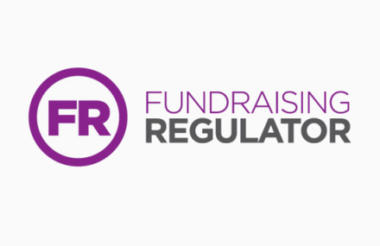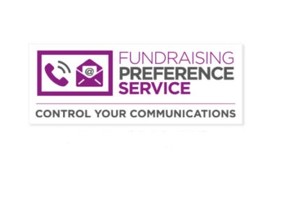The Fundraising Regulator saw its highest-ever payment rate of the voluntary annual levy, with just 83 charities ignoring or refusing requests to pay, according to its latest annual report and account.
The reporting period, 1 September 2019 to 31 August 2020, falls six months before and six months after the coronavirus pandemic began.
In March 2020 the regulator decided to reprioritise the focus of its work, which meant pausing some engagement work and marketing activity.
Highest payment rate of the voluntary annual levy
The accounts show it collected 97% of the total annual levy, from 1,877 charities.
The levy cost is for those charities that spend more than £100,000 on fundraising activities annually.
The accounts state: “It is disappointing that 20 charities decided not to contribute to the levy in 2019/20, and a further 63 charities did not engage with us at all.”
Oppenheim said: “Our achievements throughout the year, such as the launch of the new code and high rate of levy payment, represent our maturity as a regulator and the charity sector’s support of self-regulation.”
The accounts also show that there was an increase in the number of charities signing up to voluntary regulation. As of 31 August 2020, there were 4,289 charities registered, including the 1,877 levy payers.
This is an increase of 19% on the previous year.
Change in nature of enquires
This financial year the regulator received 1,143 enquires, nearly half of which, 45%, came from charities or their trustees, and 31% came from the public. This is broadly consistent with the profile of enquirers in the previous year.
The report observes how the nature of enquiries received changed over the period, suggesting that fundraisers were adapting to the restrictions on social contact.
Gerald Oppenheim, chief executive of the Fundraising Regulator, said: “Despite the challenges presented by the pandemic, our annual report demonstrates how the sector has continued to respond positively to our regulatory activity and maintain high standards of fundraising practice.”
The regulator also saw fluctuations in the volume of complaints it received across the year, reflecting times when public fundraising methods were paused.
In 2019-20 it received 836 complaints, a 13% increase on the number received in the previous year.
The most complained about methods of fundraising were charity bags, online fundraising and face-to-face fundraising.
The regulator published 25 investigation summaries and found a breach of the code in 80% of these cases.
As many public fundraising activities were paused in March 2020 due to the pandemic, it saw a decrease in the number of complaints made. However, numbers picked up in July as charities began to adapt and resume activity.
Income: Underspent by 10%
Its income for this accounting period is £2.389m, which is comprised income from the levy of £2.157m, 90% of total income, and £229k from the registration of small charities and commercial organisations engaged in fundraising, along with £3000 of investment income.
There was an increase in income of £215,785 compared to the year ending in 2019.
The regulator incurred expenses of £1.92m throughout the year and achieved a surplus of £470k, which has been taken to reserves.
Reserves have improved to approximately £1.16m, compared to £693,000 in 2019, which is the target level set by the board in 2016.
Its planned budget for the year of £2.15m was underspent by £230,000, 10%, as a result of pausing planned project work due to the pandemic.
Fundraising Preference Service
The Fundraising Preference Service (FPS) is a free service which allows members of the public to manage the direct marketing contact they receive from registered charities.
During this financial year, 1,971 individuals suppressed contact from charities, and a quarter of these individuals used the service on behalf of a friend or relative. They made 5,503 suppressions in total.
Usage of the FPS has gone down by 37% on the figures reported last year. This is, in part, due to postponed marketing activity.
In 2019-20 the regulator ended its contract with an external call centre as it was handling fewer calls than initially anticipated.
It now receives 98% of suppressions through the FPS digital portal and any calls receives are handled in-house. This has saved just under £14,000.
'The sector has responded with agility and willingness to evolve'
Lord Toby Harris, chair of the Fundraising Regulator, said: “This year our primary focus has, of course, been to help fundraising organisations meet the challenges of the pandemic through guidance and resources. We’ve also made it a priority to ensure the public know what good fundraising looks like.
“It was a year in which we saw true innovation and resilience as many organisations increased their use of digital fundraising methods and overhauled the way they interacted with donors. Collectively, the sector has responded with agility and willingness to evolve.
“As the Fundraising Regulator enters its fifth year of operation, I believe the sector has made significant strides forward. The evolution in fundraising practice we have seen in just five years is a credit to the progressive nature of the fundraising sector, and proves our regulatory model is working to raise standards.”
Related articles












